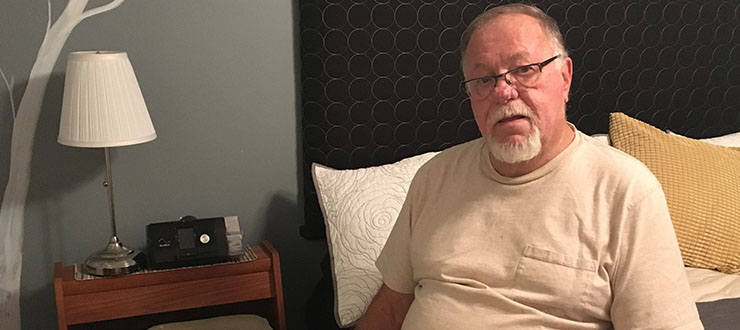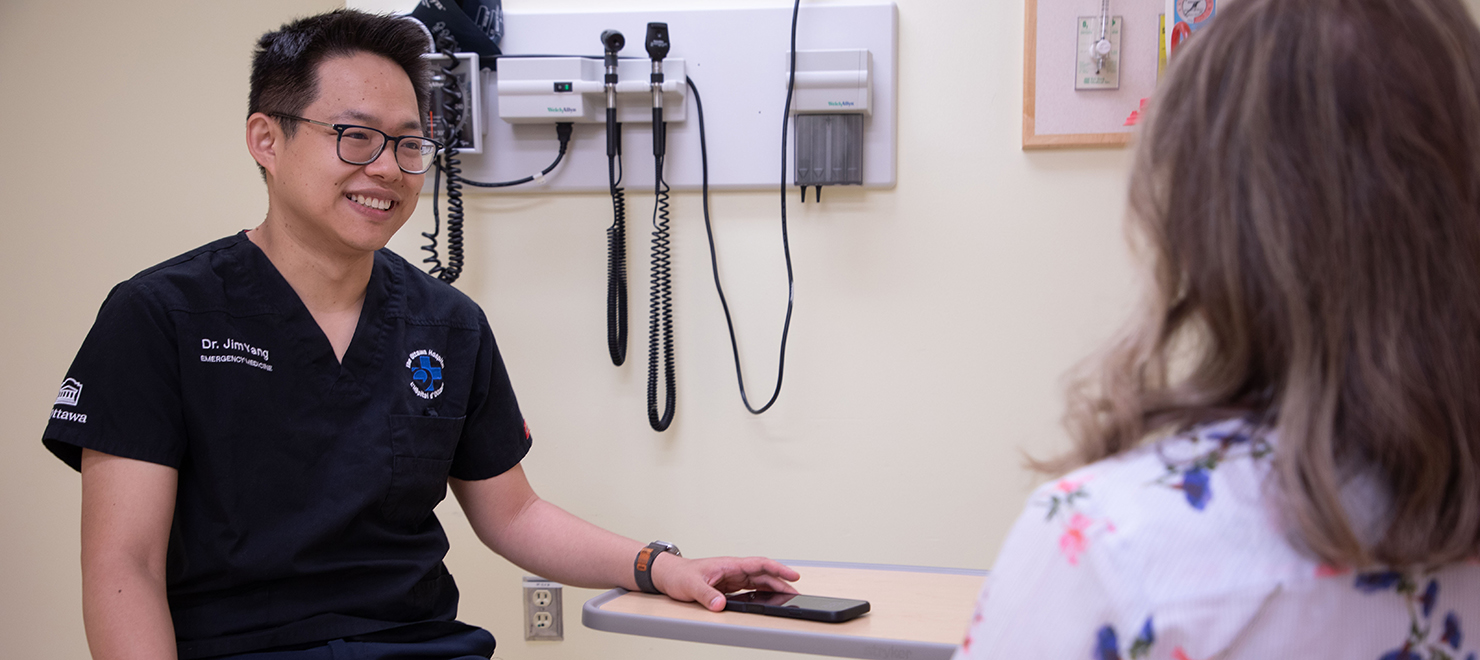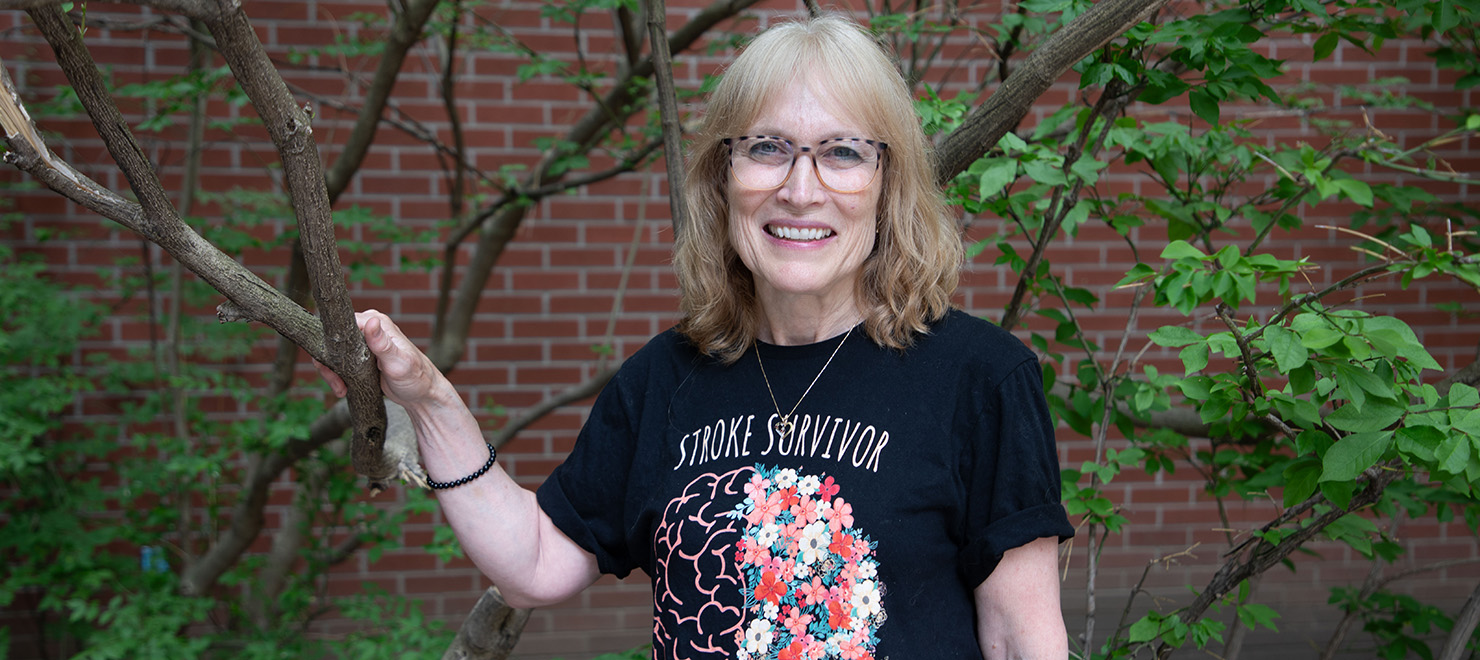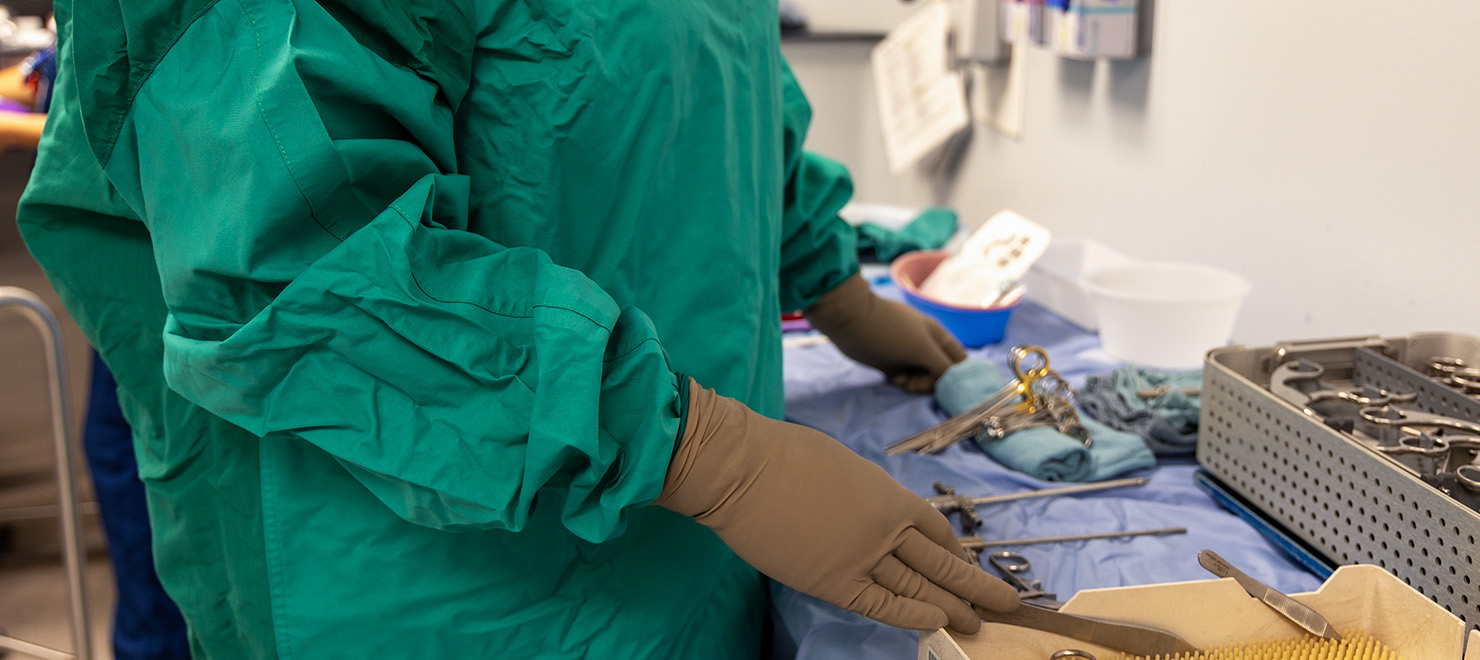
Ron Cooper can now safely get dialysis treatments at home thanks to the training he received from The Ottawa Hospital’s Home Dialysis Program team.
The Home Dialysis Program at The Ottawa Hospital gives some patients the ability to receive their dialysis treatment at home.
Patients from Cornwall to Carleton Place have benefited from the Home Dialysis Program, which is part of one of the largest nephrology programs in North America.
Once enrolled in the program, patients receive one-on-one training on how to manage their condition from home and how to use any necessary equipment. After that, they are followed closely by a team of health-care professionals that can include nephrologists, nurses, dieticians and social workers from The Ottawa Hospital.
The result is convenient, effective care that fits patients’ schedules. Since patients can perform peritoneal or hemodialysis at home with their own personal dialysis machine, they don’t need to travel to the hospital for treatment.
“It’s about a patient-centered model of care”
Treatment schedules can be tailored to the patient’s lifestyle. For some patients, hemodialysis treatment during the night while sleeping can minimize disruptions during the day. For others, having a short daily treatment fits better within their schedule.
Indeed, choice is the hallmark of the Home Dialysis Program.
“It’s about a patient-centered model of care,” said Marie Casey, Clinical Manager for the Home Dialysis Program. “Our patients who have this option have chosen to undergo their treatment at home. and we provide them with the care and education to make that happen.”
At the moment, more than 220 patients are enrolled in the program.
One of those patients is retired police officer, Ron Cooper. He recently attended the training sessions led by the Home Dialysis Program team.
“Everyone made me feel really welcome,” Ron said. “It was amazing. The procedures were all well explained. By the time I left on Thursday, I was very, very comfortable with the whole thing.”
“I don’t have to worry about carrying bags around. I think it will make me a little more free.”
Ron will be putting that knowledge to good use when he sets himself up to receive dialysis at home.
“The dialysis is done at night, so I have the ability to be spontaneous during the day.” he explained. “I don’t have to worry about carrying bags around. I think it will make me a little more free.”
It takes a team of knowledgeable and dedicated staff to run the program. The team operates on a rotating schedule, spending four weeks in the clinic at the Riverside Campus leading patient and family clinics and teaching sessions. They then spend the next eight to ten weeks caring for patients in the patient’s home. The flexibility of the program means that staff are available for patient visits on weekends, evenings and holidays.
“I have nothing but compliments for the hospital staff.”
That kind of flexibility is great news for patients, but it can pose challenges for staff.
“When our nurses are out on the road, they work in isolation and it’s a challenge.” said Casey. “It’s a very independent form of nursing.”
Technology helps the team stay connected. Cell phones and laptops help nurses communicate with their peers while on the road.
Ron appreciates every single member of the team for their efforts.
“I have nothing but compliments for the hospital staff,” he said. ”I felt like I was royally treated. They do an excellent job.”
In honour of Staff Appreciation Week, thank you to all the hard-working health-care professionals in the Home Dialysis Program. You make a real difference in the lives of our patients. To all physicians, staff and volunteers at The Ottawa Hospital who provide world-class, compassionate care every day, thank you.

Support patient care and research at
The Ottawa Hospital
You might also like…
Less time charting means more time with patients: How The Ottawa Hospital is using AI to support patient care
“I’m seeing and treating more patients.” Find out how DAX Copilot, a powerful AI assistant, is helping our physicians cut down on paperwork, improve their own well-being and spend more time with patients.
From survivor to supporter: Peer volunteers bring hope to patients recovering from stroke
Drawing on their own lived experiences as stroke survivors or caregivers, volunteers with March of Dimes Canada’s After Stroke Hospital Peer Connections program offer emotional support to those just beginning their recovery journey. Discover the difference they’re making and learn about how you can request support for a loved one — or become a beacon of hope yourself.
New reusable surgical gowns a step towards greener operating rooms
The Ottawa Hospital is finding safe, innovative ways to reduce medical waste in its operating rooms by using more environmentally sustainable products.
Sign language interpretation services at The Ottawa Hospital: 5 FAQs
Do you require a sign language interpreter when you come to The Ottawa Hospital? For patients who are Deaf or hard of hearing, we provide both American Sign Language (ASL) and Langue des Signes Québécoise (LSQ) interpretation services at no cost. Before your next appointment with us, find out everything you need to know.
“Crash testers”: Preparing our health-care teams for real-life emergencies
Swapping patients for manikins, our Simulation Patient Safety Program recreates medical emergencies right in our hospital, allowing our care teams to “crash test” their responses to cardiac arrests, respiratory failures, mass casualty events and more. Dive into this Q&A for a closer look at how this training program enhances patient safety and quality of care.
The place to be: The Ottawa Hospital recognized as one of Canada’s most admired corporate cultures
The Ottawa Hospital (TOH) has been named one of Canada’s most admired corporate cultures. Guided by compassion and commitment to patient care, TOH has developed a workplace culture that inspires confidence and trust in our employees, patients and family members.


 To reset, hold the Ctrl key, then press 0.
To reset, hold the Ctrl key, then press 0.





